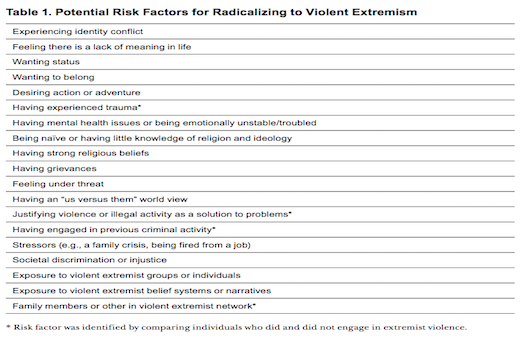
#StereotypeMe
By Cameron Shuler, MS Student
This Fall semester, students in Dr. Julie Shedd’s CONF 625 course entitled Engaging Conflict, were tasked with creating and implementing conflict resolution projects in real world contexts.
The class was divided into 3 groups under the central theme of extremism. Our group was tasked with designing and implementing a social media campaign focused on countering violent extremism (CVE). I worked alongside 5 other Master’s students: Khaled Laban, Lindsey Lucente, Gareth Williams, Kadija Diallo, and Mohammed Ali. We decided to design a CVE campaign with the goal of engaging with college freshmen at George Mason University.
College freshmen are considered to be a uniquely vulnerable population as they are most likely to experience loneliness, isolation, and a lack of belonging throughout during their transition into college. Existing research on radicalization and extremism reveals a correlation between these sentiments and proclivity of individuals either being recruited and/or joining extremist groups.[1]

National Institute of Justice: “Radicalization and Violent Extremism: Lessons Learned from Canada, the U.K. and the U.S.” (2015)
In consideration of these factors, our group’s CVE campaign strategy was designed with the goal of fostering conversation among freshmen and Mason students who hold different views, backgrounds and perspectives with the goal of decreasing the likelihood that students would radicalize to violent extremism.
Throughout the 2016-2017 academic year, The Office of Institutional Research and Effectiveness at Mason, conducted a university-wide assessment in partnership with the National Institute for Transformation and Equity (NITE). This assessment was designed in order to measure and obtain an understanding of how Mason “cultivates an inclusive, equitable, and supportive campus environment for diverse students.”[2] Recently, the “Culturally Engaging Campus Environments” executive report was released. In it, the The report illuminates general trends and valuable insights regarding Mason’s undergraduate student body. In particular, one section of questions asked students to rate their ability to understand, accept, appreciate and collaborate with people from different cultures. Overall, roughly 40-42% of upper division – junior and senior - undergraduate students rated their ability as “much better” compared to when they first started at Mason.[3] Though encouraging, disparities between lower and upper division students demonstrates how engaging across cultural backgrounds can be particularly challenging for freshmen students.
In light of this, our group entitled our CVE campaign: #StereotypeMe. The campaign is designed to create an online space for Mason students to share instances where they have been stereotyped by someone else and/or where they have mistakenly stereotyped someone else. We set up a Facebook page for students to either write out or record a video of themselves to share their experiences. This past week a portion of our group was able to hosted an event on the Fairfax campus in order to invite students to participate in our campaign. We plan to continue to our campaign throughout the remainder of the semester and to assess the effectiveness of our campaign once it is completed.
References:
[1] https://www.ncjrs.gov/pdffiles1/nij/249947.pdf
[2] https://ira.gmu.edu/wp-content/uploads/2017/10/CECE-U-2017-232186-George-Mason.pdf
[3] https://ira.gmu.edu/wp-content/uploads/2017/10/CECE-U-2017-232186-George-Mason.pdf (27)
